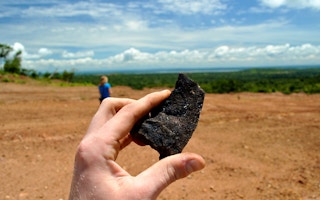The world is coming together on renewable energy. Trust in technology such as solar and wind power generation is increasingly reflected in the investment it receives from governments around the globe. In the UK, fairness to the consumer and affordability are at centre stage as the country look to eradicate fuel poverty on the road to a zero-carbon future.
The Scottish government is considering a not-for-profit energy utility to compensate the consumer by reducing the amount of energy trading in the private sector. Elsewhere, an analysis of the value of smart meters—the household devices which track energy usage and charge consumers accordingly—returned an unsatisfactory verdict. The saving for the UK consumer was found to be only £11 per year—disappointing in light of the £11 billionn investment for the switchover to smart meters.
In a similar vein of “fair” energy, eliminating the sector’s carbon footprint is the other focus of this debate, particularly in discussions about “climate-conscious investment”. The Bishop of Oxford, Steven Croft, recently used the idea to urge investors “to divest from any fossil fuel company which is not on an unequivocal path by 2020 to aligning its business investment plan with the Paris Agreement to restrict global warming to well below 2°C”.
But there’s a reality we’re all overlooking when it comes to the future of our energy supply. That is, we’re only applying a sense of fairness to our own society. We must take a global view of fair trade in energy, which is conscious of the true cost of our low to zero-carbon technologies.
The true cost of power
In June this year it was reported that child labour was being used in dangerous cobalt mining in the Democratic Republic of Congo (DRC). The mineral cobalt is used in virtually all batteries of devices we use everyday, including mobile phones and computers—but also electric vehicles. A report by Amnesty International first revealed that cobalt mined by children was ending up in products from several companies, including Apple, Microsoft, Tesla and Samsung. The latest research by the United Nations Children’s Fund (UNICEF) estimates 40,000 children are working in DRC mines.
Cobalt plays a significant role in the development of many prominent renewable energy technologies such as solar power, wind power and bio-gas. Although cobalt is not directly used in the solar panels themselves, rechargeable batteries containing cobalt are important to store the energy produced.
Cobalt can be found in the cathode of lithium-ion batteries. In wind turbines, permanent magnets are used in generators to create a magnetic field without an input of electricity, allowing the turbines to run at lower wind speeds while still producing energy. The use of permanent magnets also negates the need for a gearbox in the wind turbine, improving reliability and lowering maintenance costs. While a significant engineering achievement, cobalt sourced from child labour is an important component here.
Cobalt is also a bio-essential element, which means organisms need it for growth and reproduction and it plays a key role in renewable biogas technology. Biogas is a type of biofuel that is naturally produced from the decomposition of organic waste.
Fairtrade food—why not energy?
So why hasn’t the sourcing of cobalt provoked a global reaction akin to that which launched Fairtrade clothing and food? Is energy, which underpins all of our infrastructure and services, exempt from responsible trading? Are governments willing to turn a blind eye to the ethical issues of a low-carbon future?
Our transition to a low-carbon economy is not a movement that will lose pace—in fact the European Commission estimates that a €180 billion annual investment in clean energy is required to keep the rise in global temperature below 2°C. So we have to ask the question—are we exacerbating exploitation as we invest in low-carbon technologies without due diligence to the ethics involved?
To avoid public money funding child exploitation, we should apply a Fairtrade certification scheme to technology that promotes better prices, decent working conditions, local sustainability and fair terms for workers in developing countries.
Fair energy of the future
As we wrestle with the challenges of a sustainable energy future, it’s clear we need to take a broader view which embodies the interests of all people, from the cobalt miners to the energy consumers. It should also maximise the benefits of multiple technologies.
Researchers within the Smart Systems Group of Heriot-Watt University, are exploring how energy security, sustainability and fairness can be achieved through binding these various technologies into one system. Blockchain technology, a digital log which can track transactions in money and services between users, has been successfully used to curb the trade in blood diamonds by imposing strict standards on where the diamonds come from. In energy, it could be used to trace both the source of the electricity consumers buy, and the source of the materials used in making batteries as well.
“
While we strive for an energy system which is conscious of the threat of climate change, we must not lose our social conscience and ignore where the materials to build that system come from.
Ideas such as the Circular Economy are challenging manufacturers to reuse and recycle materials. Businesses which currently rely on cobalt in batteries and wind turbines can create new revenue streams by moving away from selling batteries to single customers, to a business model similar to hire purchase where a battery can be shared by several parties as needed. This would reduce the demand for cobalt and new batteries and provide a more efficient distribution of energy.
There are abundant technical tools and financial incentives which can help governments enforce Fairtrade in the energy sector. While we strive for an energy system which is conscious of the threat of climate change, we must not lose our social conscience and ignore where the materials to build that system come from.
David Flynn is Professor, Embedded Intelligence in Energy Systems at Heriot-Watt University; Merlinda Andoni is Research Associate at Heriot-Watt University, and Valentin Robu is Associate Professor, Smart Systems Group at Heriot-Watt University. This article was originally published on The Conversation.


















